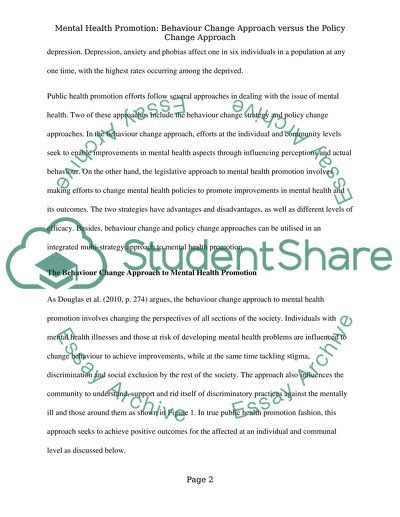Cite this document
(“Mental Health Promotion: Behaviour Change Approach versus the Policy Essay”, n.d.)
Retrieved from https://studentshare.org/health-sciences-medicine/1394283-mental-health-promotion-behaviour-change-approach-versus-the-policy-change-approach
Retrieved from https://studentshare.org/health-sciences-medicine/1394283-mental-health-promotion-behaviour-change-approach-versus-the-policy-change-approach
(Mental Health Promotion: Behaviour Change Approach Versus the Policy Essay)
https://studentshare.org/health-sciences-medicine/1394283-mental-health-promotion-behaviour-change-approach-versus-the-policy-change-approach.
https://studentshare.org/health-sciences-medicine/1394283-mental-health-promotion-behaviour-change-approach-versus-the-policy-change-approach.
“Mental Health Promotion: Behaviour Change Approach Versus the Policy Essay”, n.d. https://studentshare.org/health-sciences-medicine/1394283-mental-health-promotion-behaviour-change-approach-versus-the-policy-change-approach.


